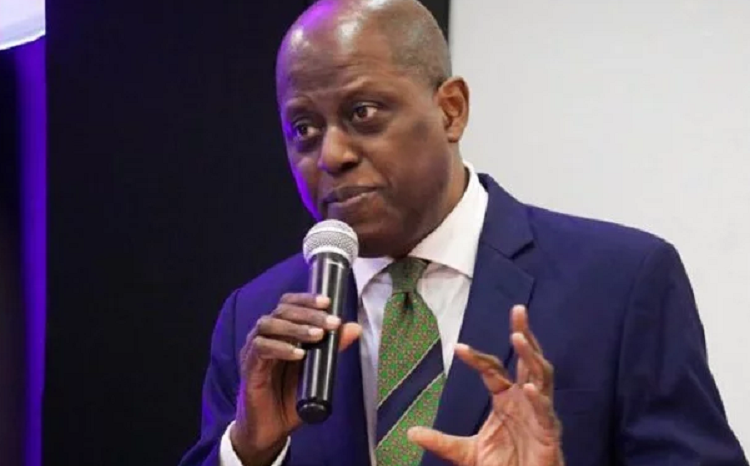The Central Bank of Nigeria (CBN) has taken a decisive step to reinforce stability and transparency in the country’s banking sector by directing all Domestic Systemically Important Banks (DSIBs) to secure regulatory approval for the appointment of new chief executives at least six months before the exit of incumbents. In addition, such appointments must be announced publicly no later than three months before the planned handover.
Though presented in a circular signed by the CBN director of financial policy and regulation, Dr. Rita Sike, the intervention considered is far more than a procedural requirement.
For the CBN, it is a deliberate effort to strengthen corporate governance, reduce leadership uncertainty, and preserve confidence in institutions whose size and influence make them critical to Nigeria’s financial stability.
DSIBs, often described as “too big to fail,” hold vast deposits, extend credit across sectors, and maintain interlinkages with the broader financial system.
Their failure—or even perception of instability—could destabilise markets, erode public trust, and threaten economic growth. The CBN’s directive recognises this systemic risk and seeks to ensure that leadership changes at these banks never become flashpoints of uncertainty.
By mandating early approvals and public disclosure, the apex bank is institutionalising orderliness in an area where Nigerian banks have sometimes faced criticism.
Leadership transitions in the past have occasionally been rushed, politicised, or shrouded in secrecy, leaving room for rumours and market jitters. The new rules close that gap, requiring banks to groom successors early and make the transition process transparent.
The context of recent leadership changes underscores the urgency. The sudden death of Access Holdings’ Group Chief Executive Herbert Wigwe in 2024 shocked not only his institution but the entire industry. While the bank moved quickly to install Aigboje Aig-Imoukhuede as chairman and later secured approval for Innocent Ike as substantive group managing director, the episode highlighted how fragile leadership continuity could be without deliberate planning. The CBN’s directive ensures that such scenarios are better managed in the future.
Confidence remains the lifeblood of banking. A whisper of instability is enough to provoke panic withdrawals, trigger investor flight, or dent international perception of a country’s financial sector.
For Nigeria, where the banking industry already operates against the backdrop of currency volatility, inflationary pressures, and global uncertainties, the need for predictability in governance cannot be overstated.
By requiring that new chief executives are identified, approved, and announced months in advance, the CBN is addressing this challenge head-on. Stakeholders—from depositors to investors—are assured of continuity, while speculation and rumours are minimised. In effect, the new rule makes leadership succession less of a market-moving event and more of a managed transition.
The CBN’s policy is not an isolated invention. Around the world, regulators have long recognised succession planning as central to financial stability, particularly in systemically important banks. Nigeria’s move brings its regulatory environment closer to these global standards.
In the U.K., the Prudential Regulation Authority (PRA) and the Financial Conduct Authority (FCA) oversee what is known as the “Senior Managers and Certification Regime” (SMCR). Under this framework, banks must demonstrate not only that they have succession plans for senior executives but also that incoming leaders are “fit and proper” to perform their roles.
Banks are expected to notify regulators well in advance of leadership changes, with both competence and integrity scrutinised before approval is granted. The British model underscores accountability and preparation, ensuring that leadership transitions are seamless and aligned with governance expectations.
In the U.S., the Office of the Comptroller of the Currency (OCC) and the Federal Reserve require large banks to maintain comprehensive succession planning as part of their risk management frameworks. The Federal Reserve, in particular, emphasises succession planning in its “Supervisory Guidance on Corporate Governance.” Banks are expected to present detailed frameworks covering both planned and unplanned exits of senior executives.
Regulators also stress the importance of leadership continuity not just for CEOs but for other key management positions. In practice, U.S. banks like JPMorgan Chase and Bank of America are known for grooming multiple layers of leadership, ensuring that sudden exits do not disrupt operations or confidence.
Closer to home, South Africa provides another instructive case. The South African Reserve Bank (SARB) requires major financial institutions to maintain documented succession plans for their executives as part of its prudential standards.
In recent years, leadership transitions at South African banks such as Standard Bank and Absa Group were handled with deliberate succession processes, often announced months in advance. By ensuring that the market and regulators are never caught off guard, South Africa has maintained a reputation for resilience in its banking sector despite political and economic volatility.
Nigeria’s directive mirrors these approaches by anchoring succession planning as a regulatory requirement rather than leaving it to the discretion of boards. It signals to global investors and rating agencies that the country’s regulators are serious about aligning with international norms and protecting the financial system against governance shocks.
For Nigerian banks, especially DSIBs, the directive means deeper investment in talent management. Succession can no longer be treated as an afterthought or a quick fix when a CEO’s tenure ends. Boards must now create and sustain pipelines of potential leaders, grooming internal candidates years in advance while balancing continuity with the need for fresh ideas.
Industry observers believe that the cultural shift could gradually transform corporate governance across the industry. By building broader pools of leadership talent, banks will become less dependent on a few personalities and more resilient in the face of unexpected exits. Transparency in appointments also ensures that shareholders, employees, and customers have greater confidence in the process.
The broader economy also stands to benefit. A stable and well-governed banking system attracts investment, both domestic and foreign. It provides businesses with predictable access to credit, protects depositors, and enhances Nigeria’s credibility in global financial circles. For an economy still grappling with structural challenges, these benefits are far-reaching.
Of course, the new rules will not eliminate every challenge. Sudden resignations, regulatory sanctions, or tragic events can still create leadership gaps that defy the six-month timeline. In such instances, the CBN will have to exercise pragmatic flexibility while insisting on robust frameworks that ensure continuity.
Temporary or acting appointments may still be necessary, but the expectation is that such arrangements will be guided by pre-existing succession structures rather than improvised under pressure.
The directive is also consistent with Governor Olayemi Cardoso’s reformist agenda, which has prioritised governance, transparency, and resilience since his assumption of office. From recapitalisation requirements to foreign exchange reforms, the CBN has consistently sought to insulate Nigeria’s financial system from shocks while making it globally competitive.
Succession planning now joins this reform package as a critical safeguard. Together, these policies send a strong message: Nigeria’s financial system is being managed with foresight, discipline, and international alignment. For investors and global partners, that message carries weight, especially at a time when emerging markets are under intense scrutiny for governance and stability.
The CBN’s directive on succession planning for systemically important banks is more than a regulatory adjustment. It is a strategic intervention designed to safeguard the foundations of Nigeria’s financial system.
By mandating early approvals and transparent announcements, the apex bank is closing governance gaps, aligning with international best practices, and preserving confidence in institutions that anchor the economy.
For the banks, the directive compels better talent management and leadership continuity. For the wider economy, it promises stability and credibility. And for depositors and investors, it delivers reassurance that Nigeria’s financial system will not be left vulnerable to leadership uncertainty.
In an age where global risks can quickly spill across borders, the CBN’s foresight is both timely and necessary. Leadership stability at Nigeria’s biggest banks is no longer a matter of chance—it is now a matter of policy.





